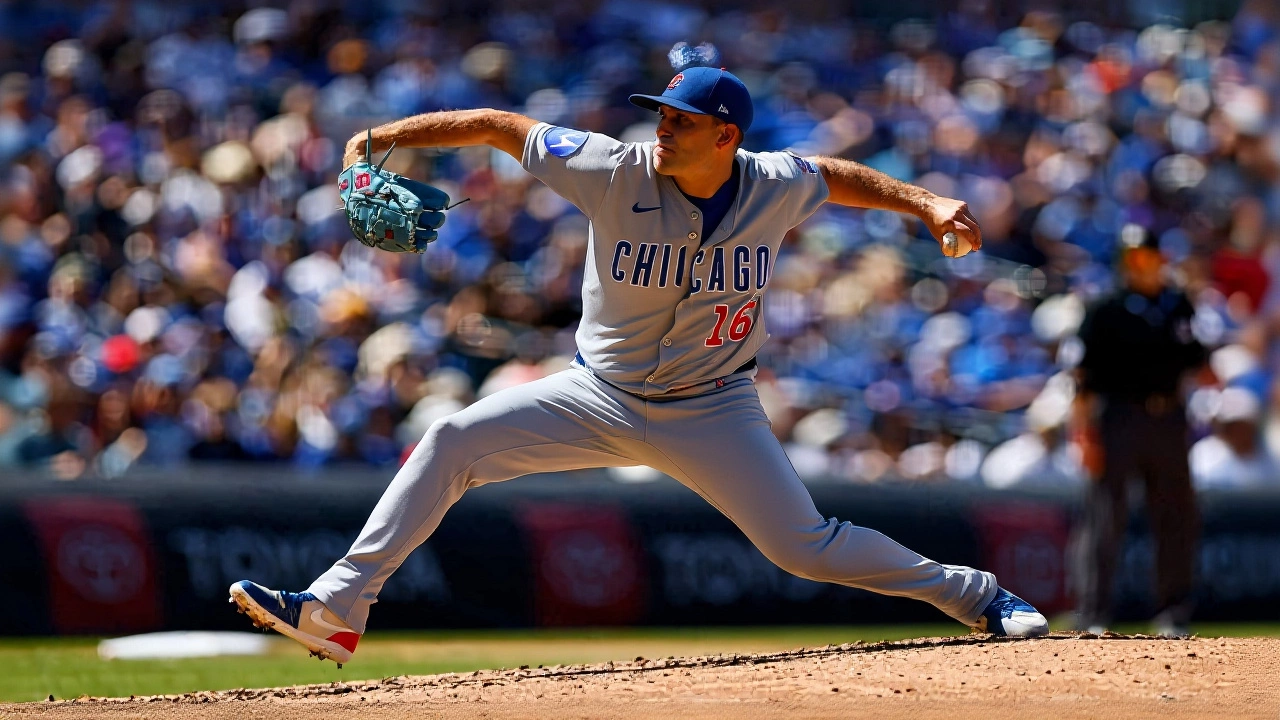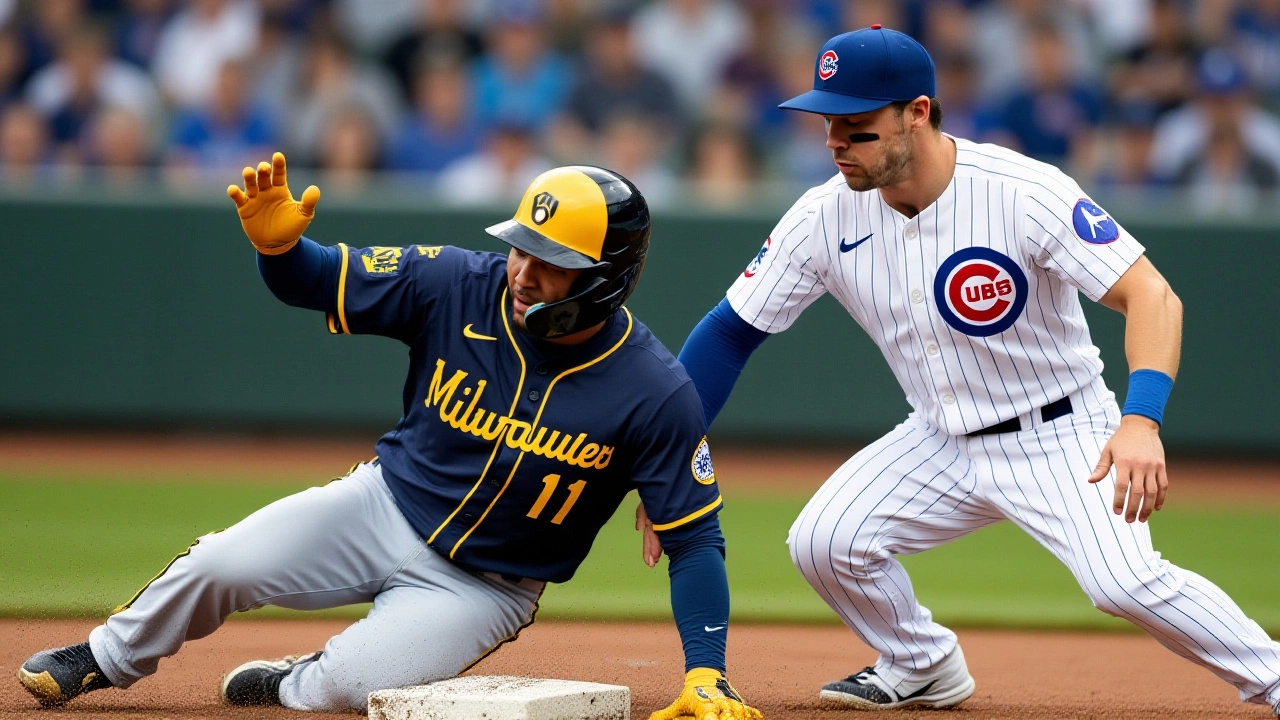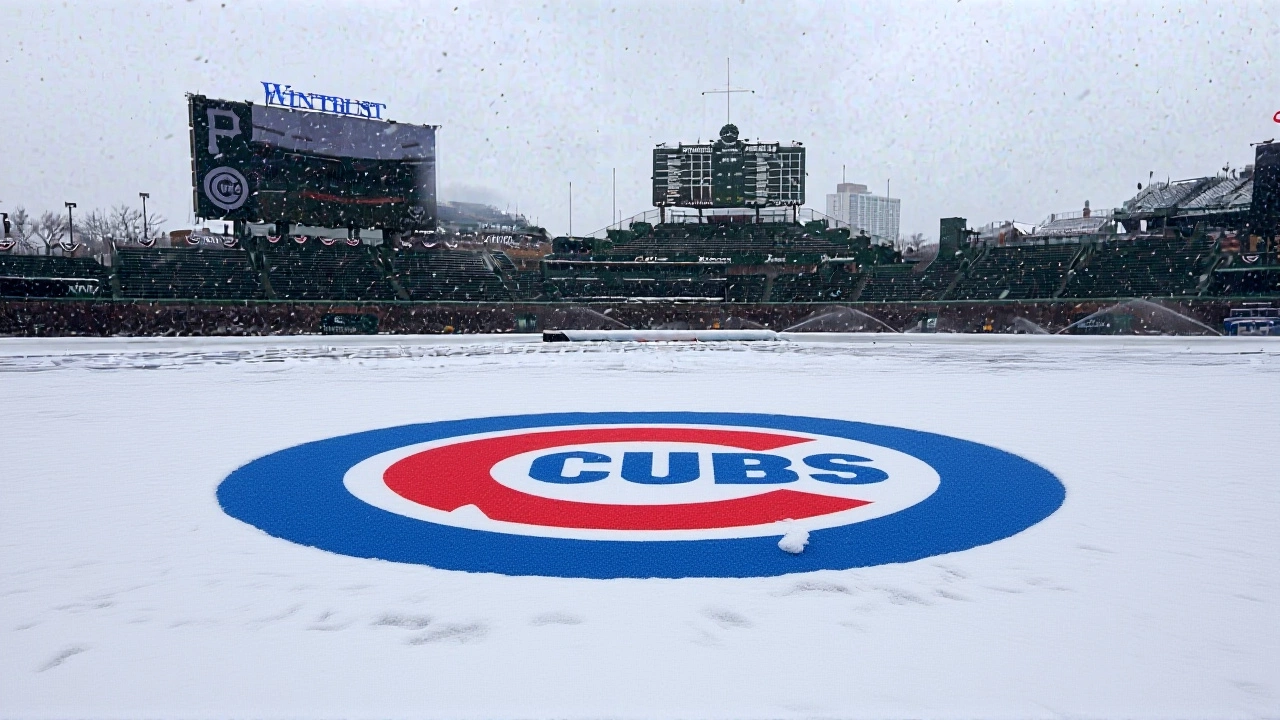When Major League Baseball unveiled its full 2026 regular‑season slate, Chicago Cubs fans got the headline they’d been waiting for: a home Opening Day at Wrigley Field on March 26, 2026 against the Washington Nationals. The twist is that the season itself kicks off a day earlier, March 25, when the San Francisco Giants host the New York Yankees at Oracle Park. For the Cubs, the 2026 campaign represents a return to the familiar ivy‑covered walls after two atypical openers abroad – one in Texas and another in Tokyo.
Opening Day Returns to Wrigley
The Cubs 2026 schedule places the North Siders back on their own turf for the first time since the 2023 season. After a 2025 postseason run that currently sees them squaring off against the Milwaukee Brewers in the NLDS, the excitement surrounding the March 26 opener is palpable. Fans will hear the familiar crack of a baseball against a backstop that’s heard it for more than a century, while the club enjoys a built‑in rest day on March 27, a rarity in today’s tightly packed calendars.
Key Homestands and Rest Days
Chicago doesn’t just get a single home game to kick things off; the team launches a six‑game homestand that runs from March 26 through April 1. After the Nationals, the Cubs welcome the Los Angeles Angels for a three‑day series (March 30‑April 1). The schedule deliberately slots an off‑day on April 2, giving pitchers and position players a breather before the first road trip, which will see them head west in early April.
Three seven‑game homestands stand out as the longest stretches of home ball for Chicago this year: April 17‑23, May 1‑7, and August 28‑September 3. Those blocks are strategically placed to align with home‑field advantage peaks – the warm Chicago spring, the mid‑season push, and the final stretch before the postseason scramble.
Rivalry Weekend and Road Trips
MLB has peppered the 2026 calendar with an extra “Rivalry Weekend” from May 15‑17. The Cubs will be part of the action, matching up against longtime foes the St. Louis Cardinals in St. Louis. The weekend promises heightened attendance, local media buzz, and a potential swing in the NL Central race.
Road trips are spaced out to avoid excessive travel fatigue. After the early April westward swing – which includes stops in San Francisco, Los Angeles, and Seattle – the club will return to the Midwest for a mid‑May series against the Milwaukee Brewers, echoing the current postseason matchup.
Season Finale at Fenway
Every good story needs a dramatic ending, and the Cubs get just that with a three‑game series at Fenway Park against the Boston Red Sox from September 25‑27. It’s the first time the franchise will close a regular season at the historic park since 2015, and the proximity of the series to the season’s final day adds extra suspense for playoff hopefuls.
Fans and analysts alike are already speculating whether the Red Sox’s late‑season surges could foil Chicago’s push for a wildcard spot. The outcome will likely influence the NL Wild Card race, which is expected to be tighter than it was in 2024.

Looking Ahead: 2027 All‑Star Game at Wrigley
While the 2026 schedule dominates headlines, the Cubs are simultaneously laying groundwork for a marquee event slated for next summer: the 2027 All‑Star Game at Wrigley. The organization has begun early logistical planning, from seating upgrades to downtown hospitality partnerships. If the 2026 season runs smoothly, the All‑Star showcase could become a watershed moment for Chicago’s downtown economy, drawing an estimated 10‑12 million television viewers and thousands of out‑of‑town fans.
“Hosting the All‑Star Game is a huge honor and a logistical puzzle,” said Jordan Bastian, the Cubs beat reporter who has been chronicling the schedule rollout in his weekly newsletter. “But the way MLB has structured the 2026 calendar – with those built‑in rest days and balanced travel – should give the club a solid foundation heading into that big summer weekend.”
Why the 2026 Schedule Matters
For the average fan, the importance of a schedule can feel abstract. Yet the 2026 layout directly impacts ticket sales, broadcast revenue, and even player performance. A study by Baseball America showed that teams with three or more consecutive home games early in the season see a 7 % boost in early‑season attendance compared to those with split road‑home patterns.
Chicago’s decision to front‑load a six‑game home stretch, punctuated by strategic off‑days, could therefore translate into higher gate receipts and a stronger start in the standings. Moreover, the inclusion of a Rivalry Weekend offers additional marketing angles for sponsors, from local breweries to national apparel brands.
Fan Reactions and Ticket Outlook
Tickets for the March 26 opener sold out within hours of the announcement, according to Ticketmaster. Social media buzz featured hashtags like #CubsHomeOpener and #Wrigley2026, with many fans posting nostalgic photos of past Opening Days. “It feels like a homecoming,” wrote longtime season‑ticket holder Lisa Nguyen on Reddit. “After the Japan series, I can’t wait to feel the wind off Lake Michigan on opening day.”
Season‑ticket packages are already seeing a 12 % uptick compared with the previous year, a clear sign that the schedule’s structure is resonating. The Cubs organization has responded by offering early‑bird discounts for families attending the May Rivalry Weekend, a move praised by local parent groups.
What’s Next?
As spring training looms, the Cubs will use the built‑in off‑days to fine‑tune rotations and bullpen roles. Pitcher Brock Lee hinted during a pre‑season interview that the early home stretch will allow him to “settle in” before the first cross‑country trip.
All eyes will be on the March 25 opener in San Francisco, because that game sets the tone for the entire league. If the Giants and Yankees deliver a blockbuster, it could elevate TV ratings for the whole week – a boon for advertisers and for the Cubs, who will be the next focal point on March 26.

Frequently Asked Questions
How does the 2026 schedule affect Cubs ticket prices?
The early six‑game homestand, combined with three seven‑game stretches, has driven demand, prompting the Cubs to keep prices steady for most games but introduce premium pricing for high‑profile series like Rivalry Weekend and the Fenway finale.
What is the significance of the Rivalry Weekend in May?
Rivalry Weekend pits regional foes against each other, boosting local TV ratings and stadium attendance. For the Cubs, facing the Cardinals at St. Louis adds a competitive spark that could influence the NL Central race.
When does the Cubs' regular season officially begin?
The Cubs start their 2026 campaign on March 26 with a home game against the Washington Nationals at Wrigley Field, following MLB’s league‑wide opening on March 25.
Will the 2026 schedule impact the Cubs' chances of hosting the 2027 All‑Star Game?
A smooth 2026 season, especially with strong home attendance, will bolster the Cubs' case for a successful 2027 All‑Star showcase, as MLB evaluates fan engagement and venue readiness.
How do the off‑days on March 27 and April 2 benefit the team?
Those rest days give pitchers extra recovery time, reduce travel fatigue, and allow the coaching staff to adjust lineups based on early performance, which can be crucial in a tightly contested NL Central.
